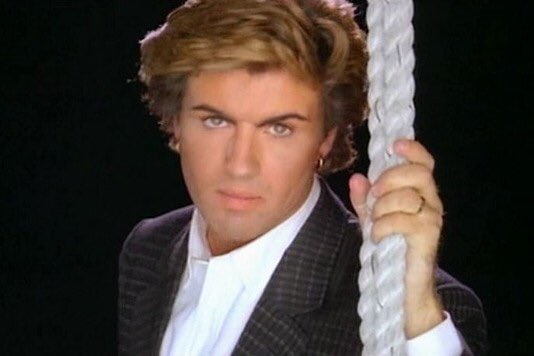George Michael’s coming out story is messy, like many are. You probably remember: in 1998, he told CNN he was gay after being arrested by an undercover L.A.P.D. officer for cruising in a public bathroom. The incident became fodder for jokes on TV and between lames for years. “Right up until my arrest,” he said in 2009. “I was still totally naïve about the level of homophobia. There’s no question when I look back it really would have hurt me [if I had come out sooner]. I didn’t realize how much I was protecting my career.”
His career slowed. When he released an album eight years later, it received middling reviews and wasn’t the comeback album his hardcore fans were looking for. That album, called Patience, was full of spectacular pop songs. It was forward looking and sampled Aaliyah and Q-Tip. On “My Mother Had a Brother,” Michael thanked his uncle, a gay man who was closeted until he committed suicide on the day Michael was born, for giving him the courage to live freely. “So those of us who have nothing to fear/ We've got to make damn sure that it was worth it,” Michael sang. “I'm bad to the bone, I'm just a little stoned/ I'm making so much love.”
To think of that 2004 album as a comeback is missing the point. It wasn’t a pitch for the right to continue a career; it was a list of statements: against war and shame. “I'm not really interested in selling records to people who are homophobic,” Michael told Oprah, as part of the album’s press tour. “I'm very lucky. I'm 40 years old. I live with a man I love dearly. I have more love success and security I could've ever dreamed of. I don't need the approval of people who don't approve of me.” Or, as he put it in a 2011 tweet, “I HAVE NEVER AND WILL NEVER APOLOGISE FOR MY SEX LIFE ! GAY SEX IS NATURAL, GAY SEX IS GOOD! NOT EVERYBODY DOES IT, BUT.....HA HA!”
And yet, Michael seems to have never felt entirely embraced. In one of his last interviews, with the BBC in 2014, he chided the media, who covered his ever-changing body and sobriety, for lack of any support. “For some strange reason, my gay life didn’t get easier when I came out. Quite the opposite happened, really,” he said. “The press seemed to take some delight that I previously had a ‘straight audience,’ and set about trying to destroy that.”
Paul Monette, the author and poet, has called Michael’s time, a “century of nightmares” for gay people. Michael experienced some of that hell — the suicide of his uncle and the AIDS-related death of his longtime partner Anselmo Feleppa in 1993. He served as a controversial and important figure in a time between gay fear and mainstream acceptance. Praising the extreme power of people who came out and lived freely in the 20th century, Monette wrote: “When we laugh together then and dance in the giddy circle of freedom, we are children for real at last, because we have finally grown up. And every time we dance, our enemies writhe like the Witch in Oz, melting, melting.” Because he was eventually honest with himself, George Michael got to dance for a while. And even as he struggled, he gave the rest of us gorgeous music to dance to.



